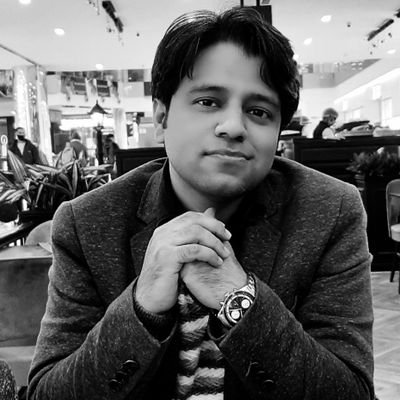.webp)
 Saquib Salim
Saquib Salim
“I (Maulana Mohammad Ali) do not care if I and my brother (Maulana Shaukat Ali) are not called Moulanas. It matters little to us……. Personally, I don't object………. But I must speak on behalf of Shankaracharya. The Shankaracharya must be addressed in a way befitting his high station in life.”
The above statement was made by Maulana Mohammad Ali Jauhar in front of B. C Kennedy, Commissioner of Sindh on 25th October 1921. Zamanshah Mahbub Shah, Deputy Superintendent of Police (DSP) of Karachi addressed Shankaracharya by his name Venkatrama instead of using the honorific title, which angered Jauhar. Seven ‘accused’, including Jauhar and Shankaracharya, were being tried for waging the war against the British Empire by inciting Muslim soldiers of the British Army at Khalikdina Hall, Karachi.
The government pressed charges against Maulana Husain Ahmad Madani, Pir Ghulam Mujaddid, and Maulana Nisar Ahmad for issuing a fatwa calling it haram (unlawful) to serve the British Army. Interestingly among the other four people, charged for endorsing and popularizing the fatwa, one was Jagadguru Shankaracharya of Shri Sharada Peeth.
Shankaracharya, in favour of the Khilafat Movement and Fatwa, argued, “as a believer in the doctrine of Swa-Dharma for all, every Hindu should necessarily sympathise with the Khilafat cause.” He later wrote, “The recent trials of seven of us at Karachi for placing God’s law above man’s are the turning point in this tremendous struggle so far as India is concerned. The Government of India and the Provincial Governments have at last cast off all their disguises and come nakedly out into the open arena with a defiant challenge of God and the spirit which all India - Hindu, Muslim, Sikh, Parsi, and Christian - is inevitably bound to take up unhesitatingly and carry on relentlessly to a triumphant, clear-cut and epochmaking issue! It is no longer a question of this or that section of the Indian Penal Code but simply of God Versus Man that India is up against today and must unequivocally answer.”
When the magistrate asked Shankaracharya to stand up and get the statement recorded Mohammad Ali protested that being a Sanyasi, Shankaracharya, couldn’t stand for anyone but his Guru. Magistrate did not record his statement but Shankaracharya did not leave his religious duty of not standing for anyone but the Guru.
The British believed, as proved by the court proceedings, that Khilafat Movement is a camouflage to hide nationalist activities in India. Though explicitly it had adopted a religious language its nationalist agenda was an open secret. They wanted to break the Hindu-Muslim unity and to achieve that they misbehaved with Shankaracharya by not allowing him to record his statement while sitting and also not using honorific terms for him, unlike his Muslim comrades - Ali Brothers, Saifuddin Kitchlew, Husain Ahmad, Nisar Ahmad, Pir Ghulam.
These tactics were countered vehemently by his comrades in general and Mohammad Ali in particular and they objected to his humiliation vehemently. Moreover, they sat with Shankaracharya without chairs. Afterward, the court absolves Shankaracharya without a sentence unlike the other six. Again, Shankaracharya did not accept it without a protest and wrote that how he was in total agreement with the movement while Mohammad Ali roared in court that Shankaracharya was a comrade and the British could not create a rift.
ALSO READ: Prof VK Tripathi: Madrassas are highly misunderstood
Shankaracharya was absolved of all charges while the other six were sentenced to two years each. Indian nationalists saw this move as an attempt to create a rift between Hindus and Muslims. Later Shankaracharya wrote why he considered - Hindus, Muslims, Sikhs, Christians, and Parsis equally important constituents of India.
